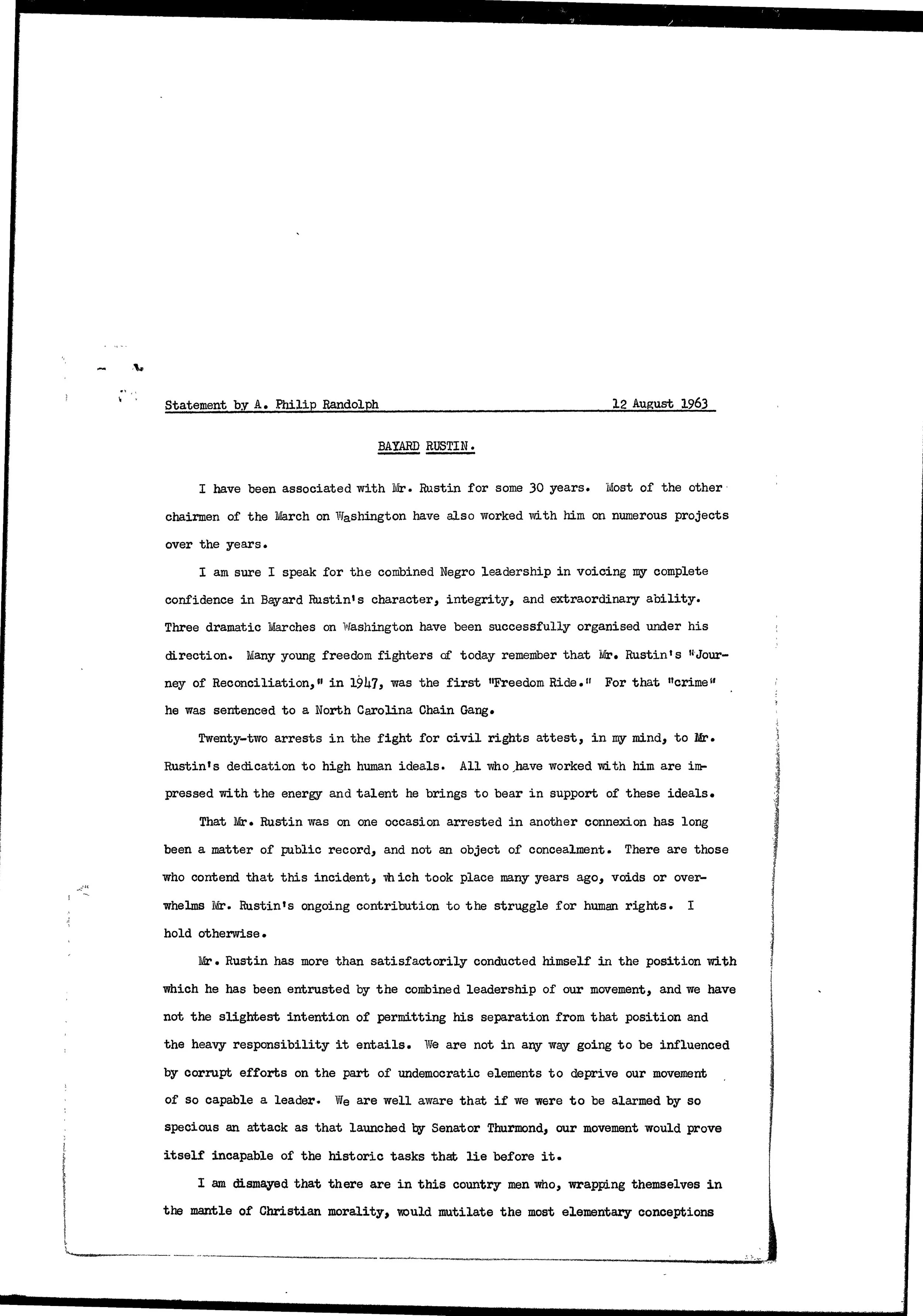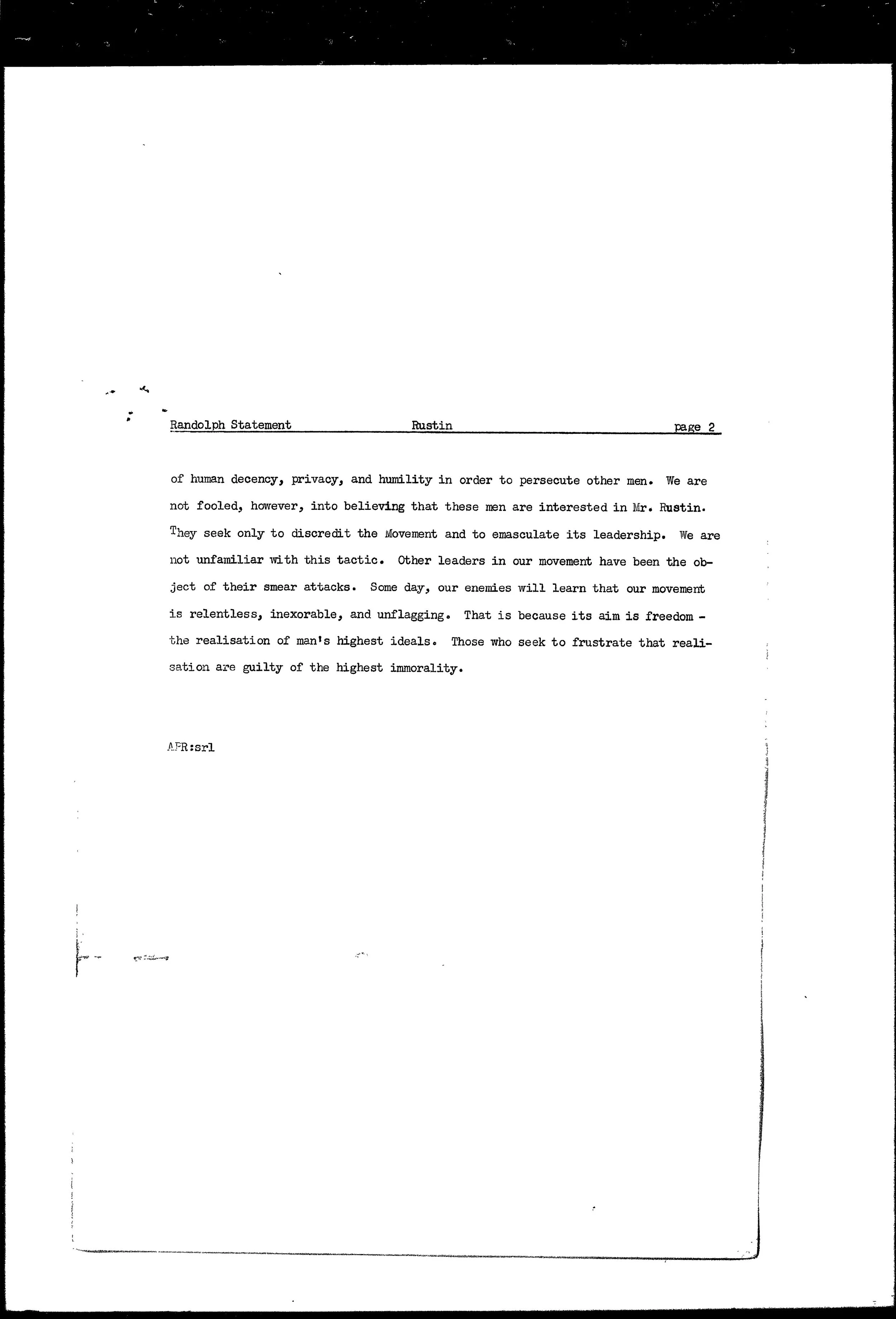Extended interview with Bayard Rustin conducted by Blackside, Inc. for the Eyes on the Prize documentary precursor, covering his organizational role in Montgomery, Birmingham, the March on Washington, Selma, and the strategic shift from protest to electoral politics.
Black Power and the Perils of Isolation: Rustin’s Case for Coalition Politics
Bayard Rustin’s influential pamphlet “Black Power and Coalition Politics,” distributed by the A. Philip Randolph Institute, critiques the rising nationalist slogan “black power” and argues that sustainable social change requires interracial coalitions with labor, liberals, and religious groups to secure economic and political reforms rather than separatist withdrawal or violent confrontation.
From Protest to Politics: Rustin's Blueprint for Political Power
Bayard Rustin's landmark essay "From Protest to Politics," originally published in Commentary magazine and reprinted as a pamphlet by the League for Industrial Democracy, advocating for the civil rights movement's strategic transformation from direct action protests to coalition-based electoral politics and economic reform programs.
SNCC and CORE Reject Protest Moratorium at New York Strategy Meeting
This report covers a New York gathering of leading civil rights figures—including Bayard Rustin, Roy Wilkins, Whitney Young, James Farmer, and John Lewis—where SNCC and CORE declined to endorse a proposed moratorium on demonstrations until after the upcoming November election, signaling a split over tactics between direct-action proponents and calls for strategic pause.
A. Philip Randolph’s Statement in Defense of Bayard Rustin
A. Philip Randolph issues a public statement affirming his “complete confidence” in Bayard Rustin’s “character, integrity, and extraordinary ability,” highlighting Rustin’s role organizing three Marches on Washington and the 1947 Journey of Reconciliation, and condemning attacks—such as those by Senator Strom Thurmond—that sought to remove Rustin from leadership.
In the tense summer of 1963, pro-segregation opponents, led by Senator Thurmond, launched a smear campaign against Rustin—citing a past arrest—to undermine his pivotal role in planning the upcoming March on Washington. Randolph’s blunt refusal to cower to “undemocratic elements” underscored the Movement’s determination to defend its organizers against moralistic political attacks and maintain unity ahead of the historic demonstration
Randolph, A. Philip. “Statement by A. Philip Randolph on Bayard Rustin.” August 12, 1963. Bayard Rustin.




